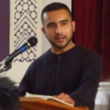Dear America: notes of an undocumented citizen
Description
THE NATIONAL BESTSELLER
“This riveting, courageous memoir ought to be mandatory reading for every American.” —Michelle Alexander, New York Times bestselling author of The New Jim Crow
“l cried reading this book, realizing more fully what my parents endured.” —Amy Tan, New York Times bestselling author of The Joy Luck Club and Where the Past Begins
“This book couldn’t be more timely and more necessary.” —Dave Eggers, New York Times bestselling author of What Is the What and The Monk of Mokha
Pulitzer-Prize winning journalist Jose Antonio Vargas, called “the most famous undocumented immigrant in America,” tackles one of the defining issues of our time in this explosive and deeply personal call to arms.
“This is not a book about the politics of immigration. This book––at its core––is not about immigration at all. This book is about homelessness, not in a traditional sense, but in the unsettled, unmoored psychological state that undocumented immigrants like myself find ourselves in. This book is about lying and being forced to lie to get by; about passing as an American and as a contributing citizen; about families, keeping them together, and having to make new ones when you can’t. This book is about constantly hiding from the government and, in the process, hiding from ourselves. This book is about what it means to not have a home.
After 25 years of living illegally in a country that does not consider me one of its own, this book is the closest thing I have to freedom.”
—Jose Antonio Vargas, from Dear America
More Details
Table of Contents
From the Book - First edition.
Similar Titles From NoveList
Similar Authors From NoveList
Published Reviews
Booklist Review
*Starred Review* At the age of 12, Vargas was brought to the U.S. from the Philippines without papers, assisted by a "coyote," a term a Border Patrol agent explains to him as he is detained as an adult in McAllen, Texas. In this excruciatingly timely memoir, Pulitzer Prize-winning journalist Vargas implements his strategy of radical transparency, purposefully laying out his undocumented status for the world to see. Although this book mimics a straightforward memoir, it is couched in questions vital for every reader's consideration: Who "deserves" citizenship? Why is migration considered historically courageous for white people but a crime for people of color? Like a cracked mirror, Vargas' story is splintered through a myriad of selves son, journalist, gay man, undocumented resident, advocate each sliver burnished by education and inspiration, courtesy in large part of the local library, where he soaks up American culture from E. L. Doctorow to Toni Morrison, becoming an American in every sense but the legal one. Vargas' frank and fearless voice thoughtfully and intentionally challenges readers to confront the call for action at the heart of this book: the urgent need for "a new language around migration and the meaning of citizenship."--Sara Martinez Copyright 2018 Booklist
Library Journal Review
"After twenty-five years of living illegally in a county that does not consider me one of its own, this book is the closest thing I have to freedom." When Pulitzer Prize-winning Vargas declared his undocumented status in 2011, Bill O'Reilly labeled him "the most famous illegal in America." Twelve-year-old Vargas left Manila, in the Philippines, in 1993, unaware he would arrive without legal documentation to live with his maternal grandparents in California. Enabled by the kindness of strangers-teachers, mentors, colleagues-Vargas's successes kept multiplying, until the cost of "lying, passing, and hiding" grew into the realization that "coming out is letting people in." For such a revealing, even dangerous memoir-"I don't know where I will be when you read this book"-Vargas is the obvious narrator. He reads with a slight uplift between phrases, adding a sense of immediate intimacy, as he lays bare his life with the aim of practicing radical transparency. While insisting that the book is not about the politics of immigration, Vargas nevertheless adroitly and patiently educates readers, proving "how difficult, if not downright impossible, it is for undocumented people to `get legal.'" -VERDICT With immigration policy constantly in the news, Vargas's journey provides an illuminating antidote to in-accurate sociopolitical rhetoric. ["A thought-provoking, moving, and highly personal memoir of Vargas's struggle to belong. Recommended for all readers interested in immigration issues and American identity": LJ 10/15/18 starred review of the Dey Street: Harper-Collins hc.]-Terry Hong, Smithsonian -BookDragon, -Washington, DC © Copyright 2019. Library Journals LLC, a wholly owned subsidiary of Media Source, Inc. No redistribution permitted.
Kirkus Book Review
As if to dare the attorney general to come find him, Philippines-born immigrant journalist Vargas, a winner of the Pulitzer Prize, owns up to being "illegal"but not criminal.As the author's account opens and closes, he has been arrested in preparation for a "removal proceeding," the consequence of his mother's decision to put him on a plane with a supposed uncle and send him to the promised land of the United States at the age of 12 in 1993. That uncle was a smuggler, and the life Vargas found wasn't all that it was supposed to be; neither did he have the papersreal ones, anywayto support things like getting a driver's license or going to the polls. Given the mood of the nation, which, as the author notes, officially no longer characterizes itself as "a nation of immigrants," it's understandable that he is perplexed and worried at his situation, perhaps less intuitively so that he should confess it in a book that almost certainly will not change many minds: Those opposed to immigration, illegal and legal, will dismiss his pleas, and those for it will share his indignation. Of more interest to readers on the middle ground, if there are any, is the author's account of how few and technically complex the supposed paths for legal immigration are these daysand how easy it is to be deported. Thus he had to wrestle when, having appeared on-air to discuss his plea, he was invited by Nancy Pelosi to be her guest in Congress, an invitation that an immigration-lawyer friend urged him to decline: "It took .25 seconds for the Breitbart website to pull up 725 articles under the search Jose Antonio Vargas.' Breitbart runs immigration policy in the United States." Though in fact detained, the author was released and now lives in a kind of legal limbo while waiting to see what, if anything, will happen.An unusual firsthand report from the immigration wars. Copyright Kirkus Reviews, used with permission.
Booklist Reviews
*Starred Review* At the age of 12, Vargas was brought to the U.S. from the Philippines without papers, assisted by a coyote, a term a Border Patrol agent explains to him as he is detained as an adult in McAllen, Texas. In this excruciatingly timely memoir, Pulitzer Prize–winning journalist Vargas implements his strategy of radical transparency, purposefully laying out his undocumented status for the world to see. Although this book mimics a straightforward memoir, it is couched in questions vital for every reader's consideration: Who deserves citizenship? Why is migration considered historically courageous for white people but a crime for people of color? Like a cracked mirror, Vargas' story is splintered through a myriad of selves—son, journalist, gay man, undocumented resident, advocate—each sliver burnished by education and inspiration, courtesy in large part of the local library, where he soaks up American culture from E. L. Doctorow to Toni Morrison, becoming an American in every sense but the legal one. Vargas' frank and fearless voice thoughtfully and intentionally challenges readers to confront the call for action at the heart of this book: the urgent need for a new language around migration and the meaning of citizenship. Copyright 2018 Booklist Reviews.
Library Journal Reviews
Pulitzer Prize-winning journalist, filmmaker, and founder and CEO of the nonprofit media advocacy organization Define American, Vargas is among America's best-known undocumented immigrants, having come here illegally at age 12 from the Philippines. Since he acknowledged his status, he has advocated for migrant and immigrant rights worldwide; here, he considers what it means to be American and how it feels when you are considered alien in your own home. With a 150,000-copy first printing.
Copyright 2018 Library Journal.Library Journal Reviews
When Vargas (founder, DefineAmerican.com) was 12, he was brought from his home in the Philippines to California to live with his grandparents. With the help of his community, he succeeded in school and went on to become a Pulitzer Prize-winning journalist. Yet his undocumented status weighed heavily, as he constantly had to lie in order to move through life. Eventually, Vargas went public about his status and founded Define American, an immigrant advocacy organization. Through a series of short essays, he meditates on the difficulty of reconciling his Filipino and American identities, race, the role of journalism and media in the immigration debate, the challenges of living as an undocumented public figure, and the harshness of current immigration policy. He intersperses facts about immigration throughout and argues that immigrants deserve to be a formal part of America. VERDICT A thought-provoking, moving, and highly personal memoir of Vargas's struggle to belong. Recommended for all readers interested in immigration issues and American identity.—Rebekah Kati, Univ. of North Carolina, Chapel Hill
Copyright 2018 Library Journal.


































